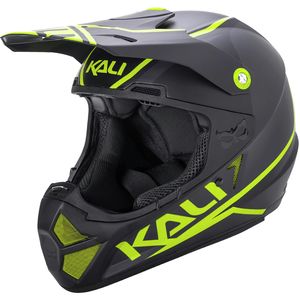Are Bicycle Helmets DOT Approved?
Like most kids, I started out with a three-wheeled tricycle, then a few years later advanced to a two-wheeled bicycle. It’s a part of growing up that most of us experience and enjoy.
Back in those days, nobody wore a helmet on a bicycle, but motorcycles, on the other hand, were different and most riders wore helmets.
Of course, I knew nothing about helmet certification at the time so the question of ‘are bicycle helmets DOT approved’ was just as remote as questions about CPSC or ASTM.
Page Content

Disclosure: As an Avantlink and Amazon Associate, we earn from qualifying purchases. Disclosure Statement.
Are Bicycle Helmets DOT Approved?
My Uncle and his friends rode motorcycles, and they all wore helmets. I noticed at a young age, that there was a ‘DOT’ sticker on the back of their helmets, but I never bothered to ask what it was or why it was there. But that changed when I was about ten or eleven and finally got my first bicycle helmet.
My first bicycle helmet was a clunky orange thing that I hated wearing. It was heavy on the head, and ugly to boot, but my parents told me that I had to wear it.
One thing that I noticed was that my bicycle helmet didn’t have the DOT sticker on the back like my uncle’s motorcycle helmet. But, why?
My Uncle told me that bicycle helmets don’t have a DOT approval sticker because DOT certification is only required on helmets for motorized vehicles like motorcycles. Bicycle helmets are certified by the CPSC (Consumer Product Safety Commission).
That year, as well as learning why my helmet didn’t have a DOT sticker, I also learned the importance of wearing a helmet when cycling. That was the year that my friend, Troy, hit a small pot-hole in the road and fell down hitting his head on the curb. He lived, but he was never quite the same again.
This content was originally published on headsdontbounce.com. If it appears on another website, it is a violation of the copyright owned by headsdontbounce.com.
What is DOT Approved?
DOT is an acronym for ‘Department of Transportation’ and the ‘DOT Certified’ sticker refers to the Federal Motor Vehicle Safety Standard No. 218 (FMVSS 218) for motorcycle helmets, which is enforced by the Department of Transportation (in the United States).
DOT approval is for motorcycle helmets, and being DOT Approved means that the helmet has passed the necessary testing required by the FMVSS 218 standard.
Bicycle helmet certification, on the other hand, is covered by the Consumer Product Safety Commission’s 16 CFR Part 1203 “Safety Standard for Bicycle Helmets” in the United States, and CE EN1078 is the European standard for cycling helmets.
It’s also important to note that bicycle helmets and motorcycle helmets are designed for different types of impact in the case of an accident, so they, therefore, require different testing standards. This is why you can’t wear a CPSC-certified bicycle helmet on a motorcycle, and why a DOT-approved motorcycle helmet would be overkill on a bicycle.
Bike Helmet Certification
When purchasing a bicycle helmet don’t bother looking for a DOT approved helmet because they don’t exist.
Or, do they?
Okay, there was one bicycle helmet that was DOT approved, but it’s not your average cycling helmet. Originally released in 2015, Kali Protectives surprised the biking world by introducing a helmet for all occasions, the Shiva™.
The Shiva™ was a full-faced helmet that was primarily targeted to Mountain Bike riders, as such it appealed to Enduro riders looking for a downhill certified full-face helmet. The last incarnation was the Shiva 2.0 which had a rather impressive list of safety certifications.
- DOT (Motorcycle certified)
- ASTM F1952 (Downhill certified)
- ASTM 2032 (BMX certified)
- ASTM F2040 (Ski/Snowboard certified)
- CPSC (Bicycle certified – U.S.)
- EN 1078 (Bicycle certified – EU)
Sadly, the Kali Protectives Shiva™ is no longer available!
So, there you have it! A DOT approved helmet that you could wear to ride your motorcycle up to the top of the snow-capped mountain. From there you could ski down to the bottom of the snow wearing the same helmet. You then jump onto your mountain bike and ride the gnarly trails down to the car park to take your road bike for the rest of the ride home. Sweet!
The Kali Protectives Shiva aside, your standard recreational or commuter bicycle helmet only needs CPSC 1203 certification. In fact, all bicycle helmets imported into or sold in the United States must be CPSC certified.

In Europe, bicycle helmets cannot be sold unless they are CE 1078 or CE 1080 certified. And, in Australia and New Zealand bicycle helmets need to comply with AS/NZS 2063.
Conclusion
Even though bicycle helmets are not DOT approved, they are certified nonetheless. It’s just a different certification to the Department of Transports motorcycle helmet certification, but it’s just as important and basically covers the same things.
Any time you get a new helmet you should always check that it has the sticker inside showing that it is properly certified to either CPSC 1203 in the United States or EN 1078 in Europe. You can read more about bike helmet certification in this linked article.
Related Reads:


